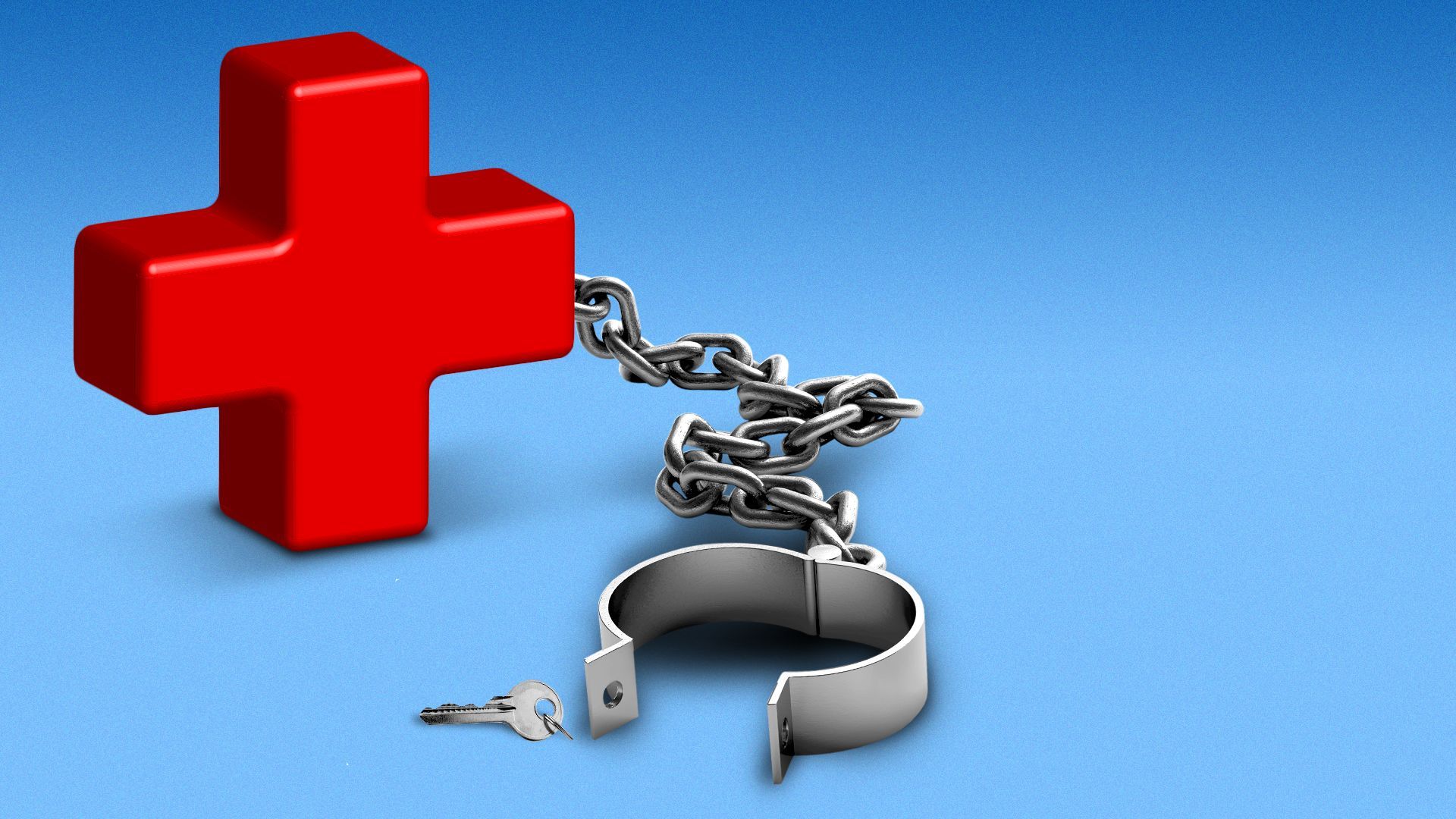St. Paul mayor proposes erasing $110 million in medical debt for residents
Add Axios as your preferred source to
see more of our stories on Google.

Illustration: Annelise Capossela/Axios
Thousands of St. Paul residents could see their medical debt wiped away under a proposed partnership with a national nonprofit.
Driving the news: In his Thursday budget address, Mayor Melvin Carter pitched spending $1.1 million in remaining federal COVID relief funds to contract with RIP Medical Debt to resolve unpaid hospital bills.
- The nonprofit estimates that it can use that cash to pay off $110 million in balances for 45,000 families, Carter said. The average recipient would see $2,324 in bills eliminated.
Why it matters: Debt related to soaring health care costs can have sweeping and destabilizing effects — one recent study found increased risks of eviction, food insecurity and poor health outcomes, regardless of income.
What they're saying: Carter called the proposal a "no-brainer" in a Wednesday interview with reporters.
- "[Medical debt is] a cloud over people's lives and finances, it keeps people from accessing the medical care that they need," he said."We understand today in a way that we didn't just three, four years ago, that anything that stands between St. Paul residents and their medical care creates a health crisis for us."
How it works: The nonprofit, fueled by donations, negotiates with hospital systems to purchase eligible medical debt in batches at a steep discount. It then forgives the debt, relieving consumers of the burden to pay.
- The program is open to those who make up to 400% of the federal poverty guidelines — about $54,000 for an individual or $111,000 for a family of four — or who have medical debt that equates to 5% or more of their annual household income. No application is required.
Between the lines: RIP Medical Debt works directly with hospital systems to identify and acquire accounts. The St. Paul funds will only cover residents' unpaid bills at health systems within the city.
- Those who have their debts cleared via the program would be informed via a letter.
Zoom out: At least two other cities, including Cleveland, have partnered with the nonprofit. Carter said he got the idea from Cleveland's mayor, who is a friend.
Of note: Carter told reporters Wednesday that local hospital systems are open to partnering on the effort. Representatives from some of those institution stood in support during the address.
- A spokesperson for the Minnesota Hospital Association said Carter's effort is "laudable and we've been happy to be in dialogue with him about this."
- She added that local systems already provide hundreds of millions in charity care and financial assistance and sometimes write off the bills of low-income patients.
What's next: The city council will weigh the proposal as it crafts a budget in the months ahead.
Editor's note: This story has been updated to include a statement from the Minnesota Hospital Association.
